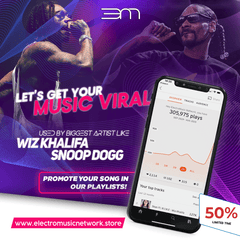
How To Get a Record Deal
Introduction
A record deal is an agreement between a record label and an artist in which the artist undertakes to make only records for the label. The phrase is most generally associated with the music industry, although it can also refer to contracts in other forms of entertainment, such as film and television.
Record deals are normally negotiated between the artist's manager and the A&R (artists and repertoire) department of the record company. A recording budget, royalties, and other terms and conditions are common components of a record agreement.
The artist is usually given a recording budget by the record company to cover the costs of recording and producing the album. Funding for promotional activities like as music videos, tours, and marketing may also be included in the budget.
Royalties are payments provided to artists in exchange for the use of their recordings. The amount of royalties paid varies based on the release medium (e.g., CD, digital download, streaming), the country in which the recording is sold, and other considerations.
The length of the contract, the artist's obligations to the label (e.g., number of albums to be recorded), and the label's rights to the artist's name and likeness are all examples of contract terms and conditions.
The music industry landscape
In recent years, the music industry environment has shifted considerably, making it easier than ever for unsigned artists to have their songs heard. However, with so many options for releasing and promoting music, it can be difficult to know where to begin.
Building a solid web presence is one of the most crucial things for unsigned musicians to undertake. This includes having a well-designed website, being active on social media, and having an effective press kit. It's also critical that your music is available on as many platforms as possible, such as streaming services, online retailers, and radio stations.
Unsigned musicians should be aware of the many methods for getting their work noticed. There are numerous music festivals and competitions that might help you get your music in front of a new audience. There are also a variety of music blogs and websites that can assist you in promoting your music.
The most essential thing for unsigned artists is to never give up and to keep working hard. You could eventually land a record deal and make it in the music industry with hard work and a little luck.
How to get a record deal
There is no one-size-fits-all solution for how to get a record deal. There are, however, a few important measures that all aspiring artists should take in order to boost their chances of being signed by a company.
First and foremost, a solid and consistent body of work is required. This entails releasing new music on a regular basis that is of excellent quality and demonstrates your distinct talent and flair. It is also critical to create a following both online and offline, as this will show labels that there is an audience for your work.
Another important step is to become active in the larger music industry and network with as many individuals as possible. This could entail visiting industry events, engaging in internet forums, and directly contacting labels and other industry people.
Finally, even if it appears that you are not making much progress, it is critical to remain patient and to keep working hard. Keep in mind that success in the music industry typically requires patience and endurance. You will eventually achieve your goals if you continue to work toward them.
The benefits of having a record deal
A record deal can help you advance your music career and expose your songs to a larger audience. There are numerous advantages to having a record deal, including better resources, more opportunity to gig and tour, and increased exposure for your work. A record deal can also help you establish a stronger team around you, including managers, agents, and publicists, who can assist you advance your career. If you're serious about pursuing a career in music, a record deal can be a terrific method to help you get there.
The drawbacks of having a record deal
There are a few disadvantages to having a record deal. One disadvantage is that you may not have as much creative control over your music as you would like. Another possibility is that you will be required to give up a portion of your royalties to the record company. Finally, you can end up on a label that isn't a good fit for your music, which can cause frustration and a sense of being trapped.
Of course, there are other possible benefits to having a record deal, so it's critical to assess the benefits and drawbacks before making a decision. If you're a good musician with a clear vision for your music, you might be better off going independent. However, if you require further assistance and money, a record label may be the best option for you.
The future of the music industry
The music industry's future is in doubt. The epidemic has had a significant impact on the business, with venues and festivals closing and performers losing cash. However, the sector is adaptive, and there are numerous possibilities for it to thrive in the future.
Embracing streaming services is one way the industry may continue to flourish. Many artists are already using these channels to reach new audiences, and by investing in them, the industry can continue to develop. Supporting independent musicians is another way the industry may grow. These artists are frequently the most creative and imaginative, and they can aid the industry to progress further.
The music industry is undergoing difficult circumstances, but there are numerous ways for it to continue to develop and thrive. The music industry can continue to adapt and provide audiences with beautiful music by embracing new technologies and supporting independent musicians.



